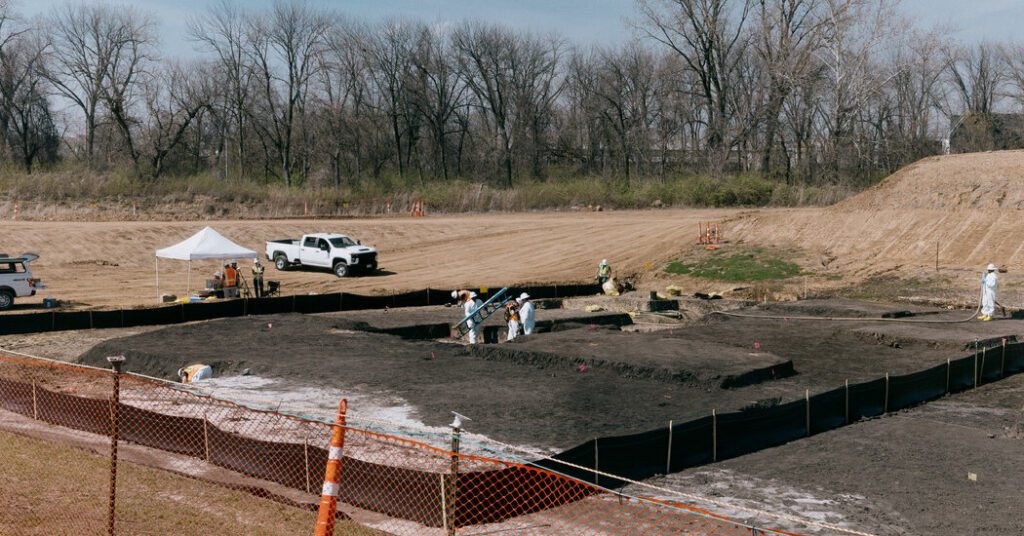A law allowing victims of government nuclear contamination with illnesses such as cancer to receive compensation from the federal government is set to expire Friday as Congress remains deadlocked over significantly expanding eligibility for the program.
The law, known as the Radiation Exposure Compensation Act, was enacted more than 20 years ago to compensate civilians who became ill from the legacy of the country’s above-ground nuclear testing program. Paid more than $2.6 billion Since its inception in 1990, it has paid benefits to more than 55,000 claimants.
But unless Congress acts, people who become ill from nuclear radiation exposure may not be able to apply for compensation and ultimately miss out on the free cancer screenings offered by their local clinics under the law.
“The Senate has passed it twice, but the House has passed nothing,” Sen. Josh Hawley, a Missouri Republican who has led the push to expand the legislation, said in an interview. “They’ve done nothing. And the message to radiation victims, to veterans, to people across the country who have literally given their health and their lives to this country seems to be, ‘We don’t care, good luck.'”
The deadlock in Congress is over whether to dramatically expand the program to include large areas of the country affected by above-ground nuclear testing — so-called “downwind residents” — as well as individuals who became ill from exposure to toxic nuclear waste produced at uranium processing plants across the country.
The original law was written very narrowly. It excluded large constituencies affected by nuclear testing, including large parts of Arizona, New Mexico, and Nevada. It completely excluded communities in places like Idaho, Montana, and Colorado. It also did not provide compensation for communities like St. Louis, where radioactive waste from a nearby uranium processing facility was not properly disposed of, making many people sick.
The Senate in March passed a bill spearheaded by Hawley and Sen. Ben Ray Lujan, D-New Mexico, that would have significantly expanded access to the funds.
The White House approved the bill, but supporters of the bill faced headwinds in the Republican-led House of Representatives, where Speaker Mike Johnson balked at the potential costs, estimated at as much as $40 billion. Some lawyers who handle RECA claims have expressed concern that if the law is dramatically expanded, the 16-person office that processes claims will not be able to keep up with the volume of new applications.
Johnson proposed a vote on a simple update to the law, which would not expand eligibility for the program but would not repeal it until 2026. A bipartisan group of House and Senate lawmakers told Johnson they would not vote for a program that would exclude voters in their districts, even though the Senate had already overwhelmingly approved a bill to expand access.
Lily Adams, senior outreach coordinator for the Union of Concerned Scientists, who has worked with lawmakers on legislation to expand the program, said the two-year extension proposed by House Republican leaders “will only perpetuate inequities and enable Congress to ignore its responsibilities to these communities.”
“Drafting this process would be cruel to all those waiting to see if they can get life-saving help while battling radiation-related illnesses,” Adams said. “Allowing RECA to lapse would also be cruel to those who are currently eligible.”
Supporters of the expanded eligibility bill are considering adding the measure as an amendment to the annual defense policy bill, one of the few bills Congress must pass this year.
Guidance issued by the Justice Department last year said it would continue to process existing claims and claims postmarked by June 10. 400 people They have already applied for compensation and are waiting for the authorities to review their claim.
Other eligible claimants may be blocked entirely.
Maggie Billiman, founder of Sawmill Dineh Warriors, an advocacy group that aims to inform Navajo people about RECA, said she recently met with a former uranium miner battling cancer who drove hours from southern Utah to see her.
Only then did he realize he was eligible for federal compensation, but she had to tell him he had only a few days left to apply.
“I was thinking this morning,” said Billiman, who has thyroid and pancreatic diseases linked to radiation exposure. “If they don’t sign the bill on the 7th, what will we do? Will we just have to go home and die?”

